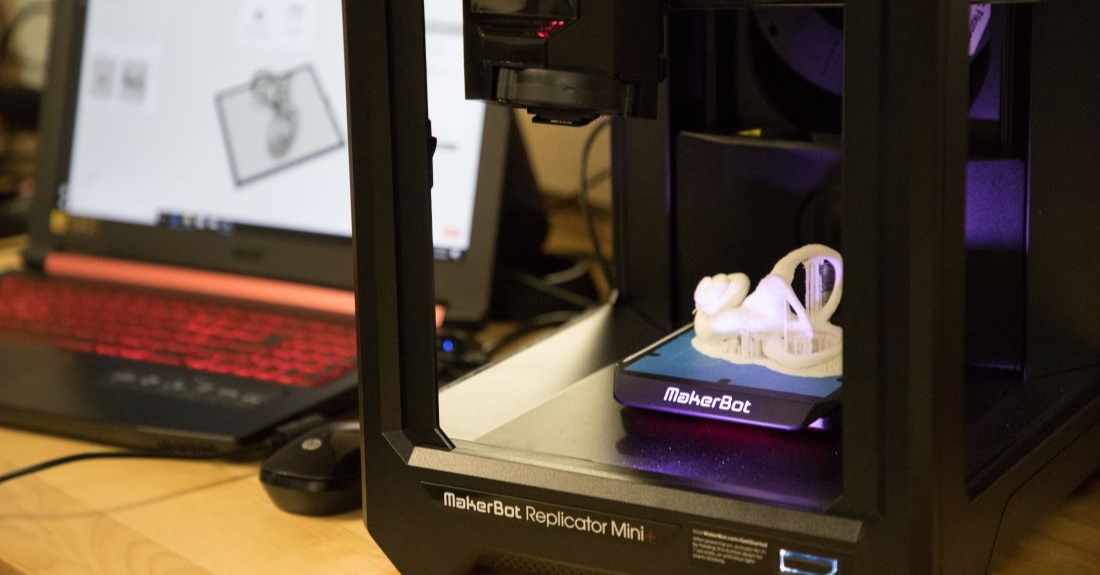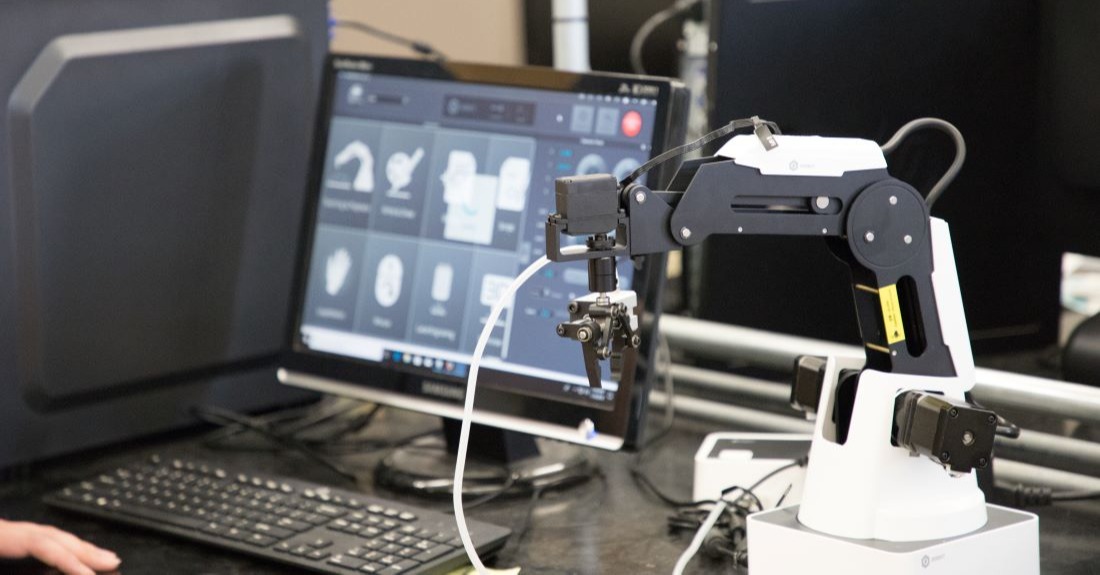Online master's in computer science
Take the next step in your career with Concordia's Master of Science in computer science. We have built a new format with three concentrations—software engineering, computer information systems, and business data applications—to be flexible so you can focus on what's important. While a bachelor's degree in a related field is recommended, it is not required. We offer optional catch-up modules to help you get on track no matter where you're at in your journey.
Classes begin every eight weeks so you can get started whenever you're ready and graduate in as little as 18 months.
Program Paths
Software Engineering
Software Engineering
Sharpen your skills by creating problem-solving software using computers. The specialized courses not only dive into traditional concepts but also current trends in the theory, design, and implementation of programming languages, compilers, and advanced algorithms. Getting your master's degree with a concentration in software engineering can open doors for advancement in careers in software development, data or business analytics, and more! People who receive their master's degree in this field typically perform roles such as team leads or as a senior developer.
Computer Information Systems
Computer Information Systems
Build your skills in the application and management of technology solutions! The specialized courses explore advanced networking, hardware and software system design, integration, and administration in the context of currently emerging technologies. People who receive a degree in this concentration typically go on to work as information technologists or system administrators.
*Course information can be found below
Business Data Applications
Business Data Applications
Develop your skills in analyzing data and using it to make informed business decisions. The specialized courses will equip you with the skills needed for programming, database administration, and business statistics, along with the knowledge you need to apply your tech skills in data analysis to help drive informed business decisions. People who receive their degree with this concentration typically work as data analysts.
*Course information can be found below
Find the information that you need
Fast Facts
Flexible
Accelerated 8-week courses are available in a fully online or in-person at our Mequon campus
Credit Hours
30Avg MSCS Salary (Payscale)
$100K+Funding your education
Our new payment plan allows you to break tuition into automatic monthly payments
Uncommon Scholarships and financial aid available for qualifying students
Funding your education
Uncommon Scholarships
Concordia offers Uncommon Scholarships to help bring this investment in your future within reach. These scholarships, which range from $150-$500 per three-credit course, are available for:
- Concordia alumni
- Employees of our corporate and academic partners (AAH, Edcor, Bright Horizons, & more)
- Employees of qualifying Christian churches and schools
- Veterans and dependents
Tuition Reimbursement
Your employer/school district may offer tuition reimbursement, minimizing the cost to you. Ask your HR department if you are eligible.
Payment Plans
Concordia's payment plan allows you to break tuition into automatic monthly payments, making budgeting for your new career a reality.
Financial Aid
Qualifying students may be eligible for Federal Aid. When you fill out the FAFSA make sure to select the correct Concordia University.
- CUW FAFSA code: 003842
- CUAA FAFSA code: 002247
Master of computer science core classes (24 credits)
An advanced course in current trends in vocations related to technology and the related dilemmas. Technology tends to amplify our actions and there are ethical considerations when leveraging technology to solve problems that may not be obvious. This is an extension of the undergraduate course (CSC410) which focuses on the fundamentals of ethics at they relate to computing. This course deals with modern trends and how those fundamentals are repurposed today in a constantly changing world.
An advanced course in current trends in Artificial Intelligence that builds on our undergraduate AI course (CSC415). An emphasis will be placed on emerging tools as well as robotics.
An advanced course in current trends involving how humans use technology and the appropriate and changing interfaces required. This is an extension of the undergraduate Human Computer Interaction course (CSC420) which emphasizes fundamental user experience theory. CSC520 tackles emerging technologies and their unique interface requirements with human beings.
An advanced course in current trends in Cyber Security and Penetration Testing that builds on our undergraduate Cybersecurity course (CSC426). Emphasis will be put on emerging threats and their detection, prevention, and recovery.
This is an extension of the undergraduate Database course (CSC430). This course provides students with the background to plan, design, implement, maintain, and use database management systems. It addresses the database structures, requirements, functions and evaluation of database management systems. The course focuses on the relational database model, standard SQL language, database structure normalization, conceptual data modeling, and the entity-relationship data model. Concepts of data integrity, security, privacy, and concurrence control are included.
An advanced course in current trends in Computer Networking and Security that builds on our undergraduate Networking course (CSC420). Focus is placed on advanced topics still related to traditional computer networking concepts.
An advanced course in current trends in Computer Architecture with a specific emphasis put on decisions related to mobile devices that needs to weigh battery life, heat, and performance more critically than traditional computer systems. This course builds on our undergraduate Architecture course (CSC325).
Concentration's Courses
Software Engineering
Software Engineering
CSC 543- Advanced Algorithms
An advanced course in current trends in Problem Solving and Algorithms that builds on our undergraduate course's data structure (CSC300) and CS Theory (CSC490). This course will look at emerging algorithms across the grand ideas of computer science. As new technologies emerge, new algorithms must be explored to support them.
CSC 560- Applied RESTful APIs and Integrations
An advanced course in current trends in server-side web development that builds on our undergraduate web technology course (CSC460). This course takes content from several undergraduate courses in data structures (CSC300), software engineering (CSC370), database (CSC430), and web technologies (CSC460) and focuses on the creation of HTTP-based CRUD services that provide real-time data to integrating applications.
CSC 549- Language Theory
An advanced course in current trends of programming language design and implementation. Students will create a modern trends-inspired programming language and solve traditional problems using their creation. This course builds on our undergraduate language theory class (CSC470).
Computer Information Systems
Computer Information Systems
CSC 552- Advanced Networking
an advanced course that focuses on modern trends in computer networking technology. While this course will be related to the other networking course in this curriculum, it takes a different approach. Focus is placed on advanced topics related to emerging computer networking concepts.
CSC 545- System Design
an advanced course that focuses on the design of software and hardware-based systems and their related integrations. This course explores the problem-solving approach involved in taking a project proposal and turning it into a working, multi-technology solution.
CSC 550- System Administration
An advanced course that focuses on the administration and maintenance of existing systems. This course deals with the unique administration problems associated with system solutions for emerging technologies.
Business Data Applications
Business Data Applications
MBA 534- Mastering Analytics and Decision-Making
Leveraging the McKinsey 7-Step Problem Solving process, students will obtain a framework to make decisions ranging from stakeholder’s short-term interests to assessment of an organization's social, political, and ecological impacts. Students are presented with real-world challenges that have multiple valid solutions. Outside research and group learning explore the open-ended and high uncertainty scenarios. Completing this course provides a structured problem-solving framework to address complex business or public policy challenges.
Prerequisite: MBA 519.
MBA 569- Management Science & Analytics
This course introduces techniques and methods used in business management to analyze and solve business problems. The course will also explore the reasoning behind the use of management science techniques. We will explore various practices from the field of management science that can be applied in spreadsheet models to help in the decision-analysis and decision-making process. The course will also present techniques to assist managers with planning, organizing, leading, and controlling projects.
Prerequisite: minimum score of 00 in 'Undergrad Management Course'.
MBA 562- Financial Analyses to Drive Business Decisions
Learn accounting and financial insight to drive business decisions that result in profitable and sustainable growth for an organization. Students will interpret financial reports, evaluate investments and understand the implications of financing strategies.
Prerequisite: MBA 519.
Continuing Education
Bootcamps and Micro-credentials
Are you interested in learning how to code but you're not quite ready to pursue a degree?
Consider Concordia's continuing education offerings. Perfect for those who want to add programming skills to their current toolbelt. You'll learn the fundamentals in computer programming and be ready to hit the ground running.
Choose from one of our options:
- UX/UI Design Bootcamp
- Coding Fundamentals micro-credential
Our Coding Fundamentals micro-credential consists of three mini-course bundles, each composed of three classes.
Choose to take fundamental classes a la carte or save money by bundling all three courses together.
Coding 1: Coding Fundamentals
Begin learning the fundamentals of coding with an introduction to Python. You'll become acquainted with Variables, Conditionals, Loops, and Functions.
- Python Coding Fundamentals ($200)
- Working with Collections ($200)
- Working with Data ($200)
Coding 2: Coding Early Object & Algorithms
- Java Coding Fundamentals ($200)
- Searching & Sorting Algorithms ($200)
- Android App Development ($200)
Coding 3: Computer Programming Linear & Non-Linear Data Structures
- Linear Linked Data Structures ($200)
- Non-Linear Linked Data Structures ($200)
- Coding Applications ($200)








